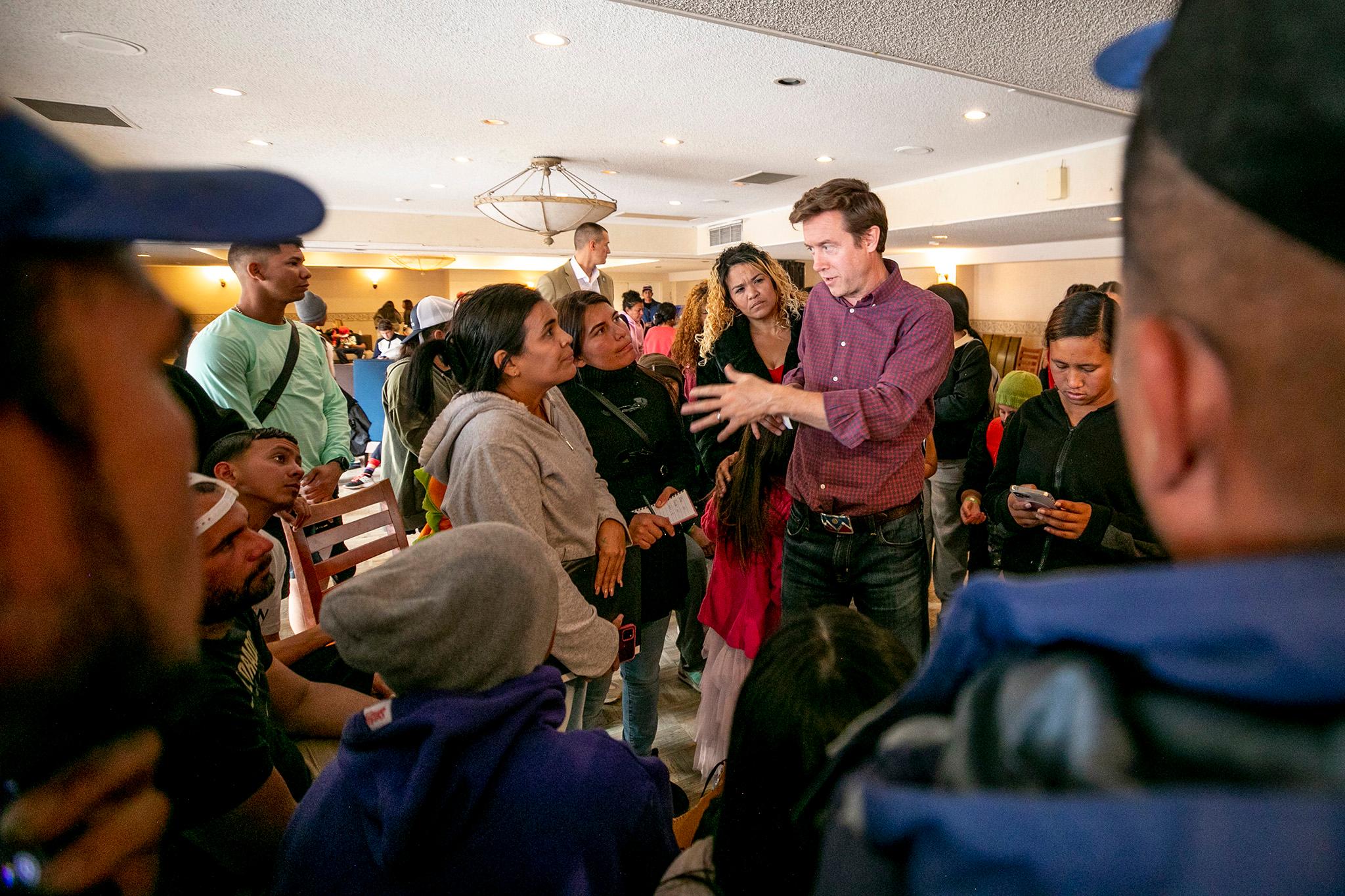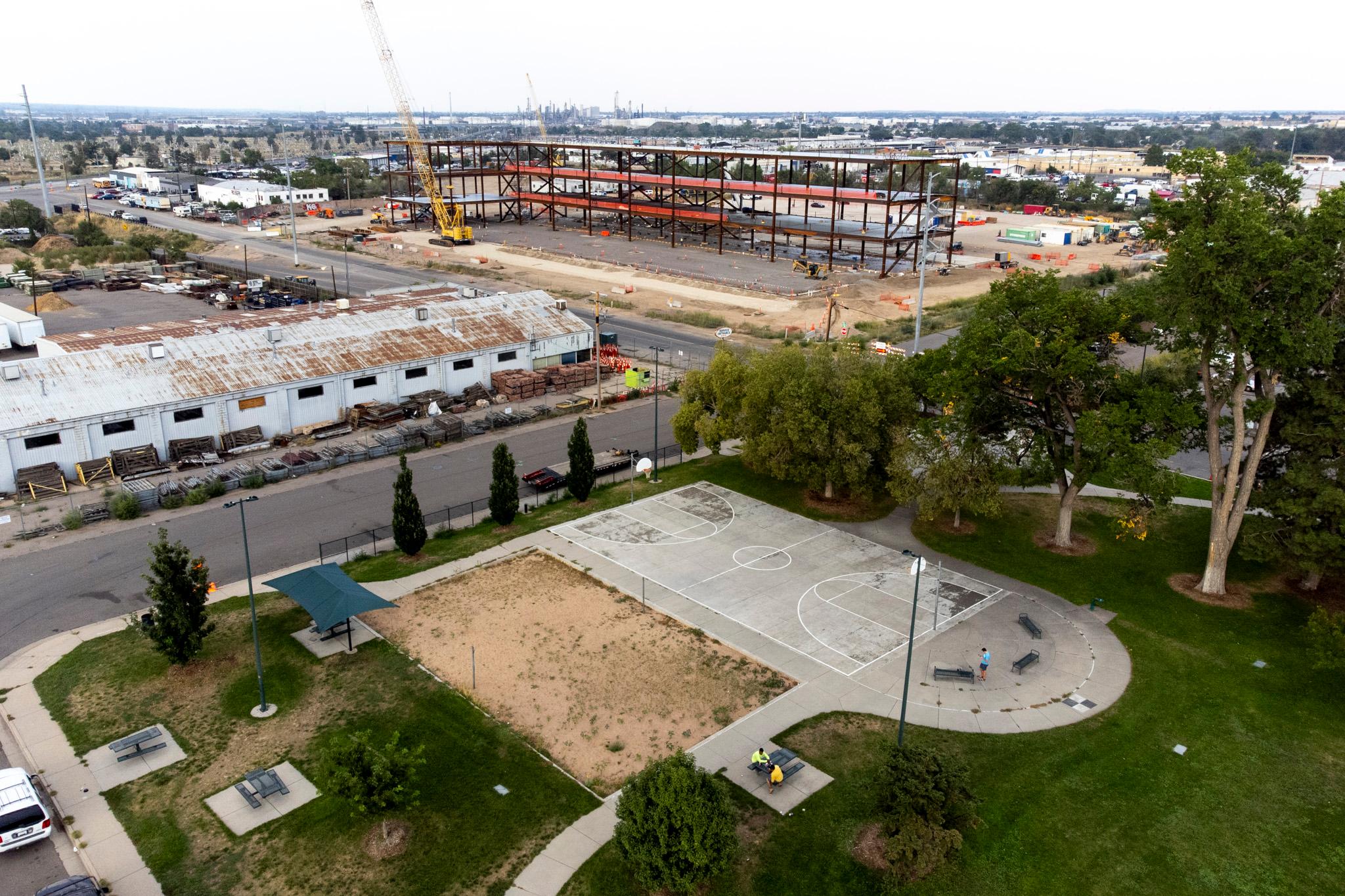For over a year, Denver has been at the frontlines of the migration crisis.
But Denver Mayor Mike Johnston told the audience at the Migration Policy Institute’s 21st Annual Immigration Law & Policy Conference that there’s another story.
“I think it’s an example of what the world saw as a crisis, for us really became an opportunity,” he said.
An opportunity he thinks can be a model for other communities.
Since 2023, Denver has seen thousands of newcomers bussed into the city from the U.S. southern border. Shelters quickly filled and the city had to look at cutting other services to meet their needs.
“We looked at how we could face a $180 million budget gap, how we could face 5,000 people in shelters and how we could face what we knew now were more and more asylum seekers with a seven year wait and no path to work authorization,” Johnston said. “And so, we went about trying to build a solution that would serve them.”

The result is the Denver Asylum Seeker program, which works proactively to get migrants who qualify on the road to work authorization within 180 days. During that time, asylum seekers are given temporary housing as well as workforce training opportunities with private sector partners focused on four career paths: early childhood education, healthcare, construction and landscaping. They are also given English language, digital and financial literacy training.
“And that turned out to be far better-quality service at a much lower cost with an actual path to get folks to work,” Johnston said. “So now we have a thousand people in that inaugural cohort of people in our workforce apprentice program, and we have three times more employer positions open to hire them than we have folks in the program right now.”
“We can both honor our values and be an inclusive place and still find a way to provide the rest of the course of these services that we need,” he said.
The DAS program was introduced as Denver ended its long-term shelters for migrants. Only people who were in shelters or transitional housing as of April 10 could enroll in the first cohort. Those who came through the city earlier, or who have arrived since, aren’t eligible.
While Johnston originally said the program would have a cap of 1,000 participants, it started with just about 800. Of those, roughly 500 are participating in the workforce training aspect of the program.
For those arriving now, Denver offers help with bus tickets to other cities, or they can stay for up to 72 hours in the city’s regular shelter system.
Johnston said people are starting “to see Denver as a real model,” one that can be a win-win for the city.
“We cut our budget for migrants next year by 90 percent,” he said. “Funding from our migrant program is what allowed us — in tough budget times — to do things like add more police officers into the street, expand our services in public parks and rec centers.”
“It’s really the migrant budget that is helping float the rest of the city this year instead of the reverse,” he said.
Johnston also addressed the fears that have swirled in communities and among politicians about crime, based on concerns that a few of the thousands of newcomers who’ve settled next door in Aurora have criminal connections.
Johnston said most migrants arriving in the city are hardworking and law abiding. He noted a handful of men who committed an armed robbery in northwest Denver have been arrested and will be prosecuted rigorously.
“But the massive mistake is to somehow generalize or fear monger that this a dangerous population of individuals,” he said.
According to a study by Stanford University, immigrants are 60 percent less likely to be incarcerated than citizens born in the U.S. Other research has found no connection between the number of undocumented residents in a community and its crime rates.
One sign that Denver’s program is having the right effect, according to Johnston? People are once again coming to community meetings to complain about issues other than migrants.













